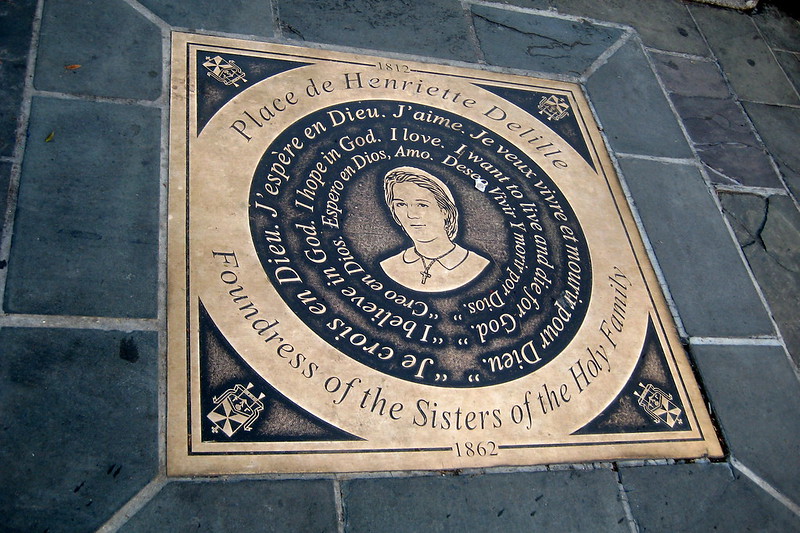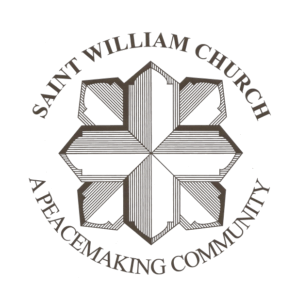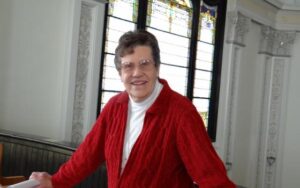All you holy women, pray for us

Venerable Henriette DeLille, founder of the Sisters of the Holy Family, a community of African American women, pray for us
St. Gertrude the Great, writer and mystic with a love for the heart of Jesus, pray for us
St. Margaret of Scotland, encourager of Church synods, pray for us
One of the gifts of participating in a recent “Women in Ministry” webinar was Rachel Lu’s brilliant and brief overview of women’s vital participation throughout all of Church history (it starts at about minute 7 of this recording). She recalled how women have always contributed at all levels of the Church. They do all the things: preach, evangelize, teach, prophesy. She invoked a holy litany: Judith, Esther, Deborah, Mary, Martha, Joanna, Susanna, Lydia, Phoebe, Hildegard of Bingen, Eloise of France, Mary Ward. In different ages there have been various constraints women navigate as the society and the Church discern what is appropriate for women to do; the consistent exception, Rachel noted, being ordination. She concluded: The Church has indicated that it’s not in their power to confer holy orders upon women.
I first want to express how much I appreciated getting to share meaningful dialogue with Rachel!
I hope a hallmark of the next 12-20 months on the synodal path is that everyone involved in and as discerning deacons, actively works to widen the space (Enlarge the tent!) in which we live the question of women’s participation in the Church. This is what is meant by synodality. It’s not a campaign to get all those people who already agree to show up at the same time; it’s a real Gospel-journey, where we let the Holy Spirit drive us to places we might not want to go, to sit with people we do not think we have any business sitting with – because God’s communion is usually bigger and more surprising than what we would imagine.
The Document for the Continental Stage of the Global Synod invites the whole people of God to live the question: what power does the Church have to rethink women’s participation?
Is the Holy Spirit calling the Church to use its power to ordain women as deacons?
Here in this project we carry this ^^ question with humility. We also press against its edges with the witness of our lives, together with the recovery of the witness of our Church’s own history in which women were called deacons for a thousand years.
We are right to be cautious in tinkering with the exercise of power in a 2,000 year old global institution. For how often have human beings gotten ideas about power wrong, especially when power gets demarcated along lines of difference? That is: when our gender or our race, our class or our culture becomes the line along which our scope of engagement in the world is defined.
November is Black Catholic History Month. A time to celebrate the heritage and legacy of Black Catholics. For white Catholics [like me], it is a time to continue to reckon with the ways in which racism in America has structured our lives as Catholics, and the ways our practice of Catholicism has structured racism in America.
These intertwined realities are inescapable facts of our history. Historian Dr. Shannen Dee Willems’ groundbreaking work “Subversive Habits: Black Catholic Nuns in the Long African American Freedom Struggle” makes visible the presence of black women religious whose lives are a testament to faith and persistence. (You can check out this talk she gave for the book release.) She notes that white supremacy functions by erasing its own violence and its victims. Recovering untold stories reveals the insidious racism that would deny women their vocation. This historical work opens up a path of reckoning with our own institutional legacies–including the ways the Catholic Church marked vocational paths not on the basis of call or conviction, but skin color and prejudice.
In the wake of this reckoning, many faith communities are walking a penitential path of reparation. This summer the US Federation of the Congregation of Sisters of St. Joseph called for the elimination of the cash bail system, and put their money where their mouth was – committing tens of thousands of dollars to support the release of folks from jail held pre-trial and reentry services for women.
We all have blind spots; it’s why we need each other. We can’t stay in our bubbles and follow Jesus in the world. He drags us into places of discomfort, in order to reveal how the powers have been dealing death, and how we are called, as His disciples, to walk in another way – of life abundant, of valuing each and every person, especially those who have been made to feel unworthy or invisible. Those whose differences have marked them as not able to act in the full power of their humanity.
May the witness of Black Catholics, and all the holy women who have gone before us on courageous but uncharted paths, give us courage for what it is God is asking of us this day and in this season.


